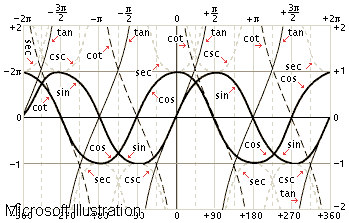 The concept of mass culture is a very complex concept that has developed especially throughout the 20th century to refer to a myriad of cultural phenomena that are based on the arrival of a large number of the population that makes up a society.
The concept of mass culture is a very complex concept that has developed especially throughout the 20th century to refer to a myriad of cultural phenomena that are based on the arrival of a large number of the population that makes up a society.
Cultural, social and other events that reach a large number of people, usually through the media
Mass culture has a lot to do with the social and political phenomena that began to take shape in the West in the first half of the twentieth century and that would later lead to a much more complex and strengthened phenomenon in the second half.
When we speak of mass culture we are referring to all those cultural and social events that reach a significant number of the population, that is, the masses understood as the majority of a society.
Origins and mission of the media
Mass culture arises from phenomena such as political totalitarianisms (which based their power on the support of the masses) or as the progressive appearance of the mass media on the cultural scene, especially radio and television.
The primary mission of the mass media such as those indicated, radio and television, is to keep public opinion informed of everything that happens in their nation and in the rest of the world, but also to offer them entertainment and to allow them to know other cultural realities. and natural that are not affordable in many cases for people, especially for those who cannot travel or approach those places. In this case, they fulfill their role of informing, entertaining and many times even educating.
Now, beyond these functions that the books that make theory on the subject repeat by heart, we cannot ignore that their content, with the passage of time, has ceased to be harmless and spontaneous, becoming largely clear dependence on the political and economic interests of its owners and the politicians of the day.
This state of affairs clearly affects the independence of opinions and of course they end up becoming mere manipulators and formers of opinions of the mass that consumes them. They make use of the power that was conferred on them and that they knew how to earn over the years to model the behaviors of their consumers and to guide them towards the side that they propose.
Association with globalization and consumerism
Mass culture is a concept that is also associated with the notion of globalization since thanks to it the culture of dominant countries such as the United States or England has reached a significant number of regions, being absorbed into them as part of the culture. original and thus canceling traditional elements of each place.
Mass culture is normally described as a type of culture based on consumerism, on permanent access to new products ranging from the simplest to the most complex, on the unification of cultural concepts or phenomena at a global level, on the cancellation diversity, access to culture for a larger part of the population, etc. All these elements can be considered negative or positive according to the ideological position of each one.
Unfortunately for those who rebel against this action perpetrated by mass culture in all aspects of people's daily lives, we have bad news: it is very difficult, if not impossible, that someone can avoid the influence that this culture proposes. , that he can remain isolated from his actions and their effects.
It is even so for those who boast of having their own deep-rooted opinions and convictions, since mass culture is capable of destroying them if it sets out to do so ...
The action of this well-designed system is so subtle that in spite of reluctance, it manages to tell such a person, regardless of the degree of independence that it shows, what to think, what to do when faced with such a fact, or what to do during the course. free time.









